Best commuter bike tyres: Durable rubber for a range of riding
Avoid flats and make the ride to work a pleasure by choosing the best commuter bike tyres
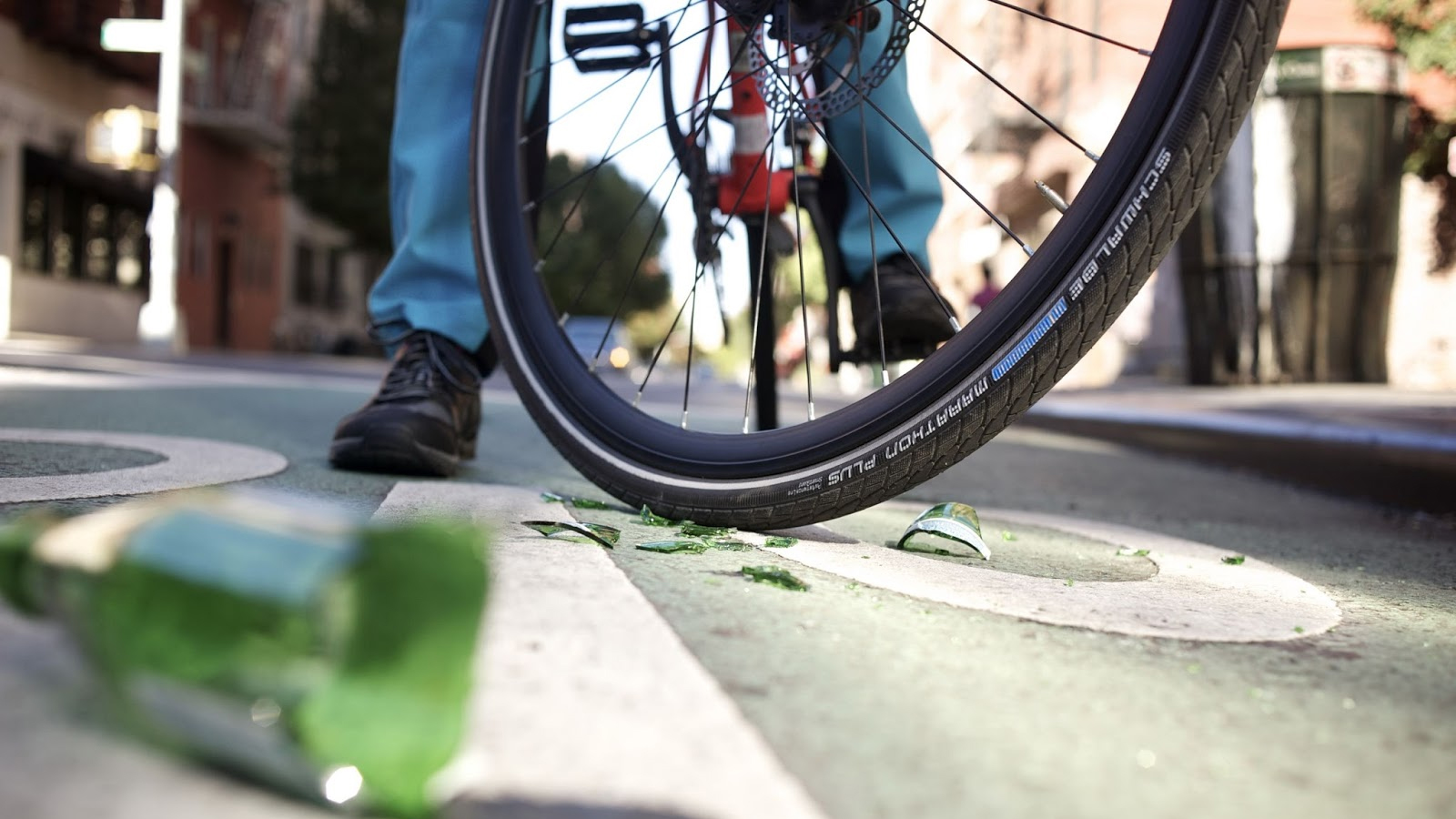
A fresh set of the best commuter bike tyres is a great first step to getting your commuter bike ready for action.
Getting a puncture on your way to or from work can really put a spanner in your plans and mar an enjoyable part of your day. Choosing the correct tyres will not only help protect against punctures but can also give you better grip and a more comfortable riding experience.
Most companies use stock tyres to help keep the cost of new bikes low. However, these are often entry-level quality and offer minimal puncture protection. Upgrading to some of the best commuter bike tyres will have a profound effect on how your bike rides, and save you both money and stress in the long run.
Though some tyres can seem pricey at first glance, when compared to the cost of regular puncture repairs, their true value will ultimately become apparent. Not only can an upgrade offer better protection, but you can tailor your choice to the length, terrain and weather conditions of your commute.
So whether you're heading to work on one of the best commuter bikes, a hybrid bike, a commuter-friendly folding bike, or an electric bike for commuting, we've gathered our picks of the finest rubber to bolt on as an upgrade. We've also got suggestions for road bike commuters and for gravel bike users too.
Scroll on for these, or head to the bottom for our buyer's guide and FAQs to help you get the right tyres for you.
Best commuter bike tyres
Tyres may seem a bit humdrum, but there's actually quite a lot of new tech that goes into making the best bike tyres faster and more durable, so there's a steady turnover of designs. We originally wrote this guide back in 2022, but updated it in April 2024 with what we consider to be the best current bike tyre products for commuting.
Best commuter tyres for hybrid bikes
Hybrid bike tyres usually prioritise a robust build and durability over weight considerations. You'll usually find a distinct tread pattern and some additional width for extra grip, while some hybrid bike tyres for commuting will have reflective sidewalls for better night-time visibility.
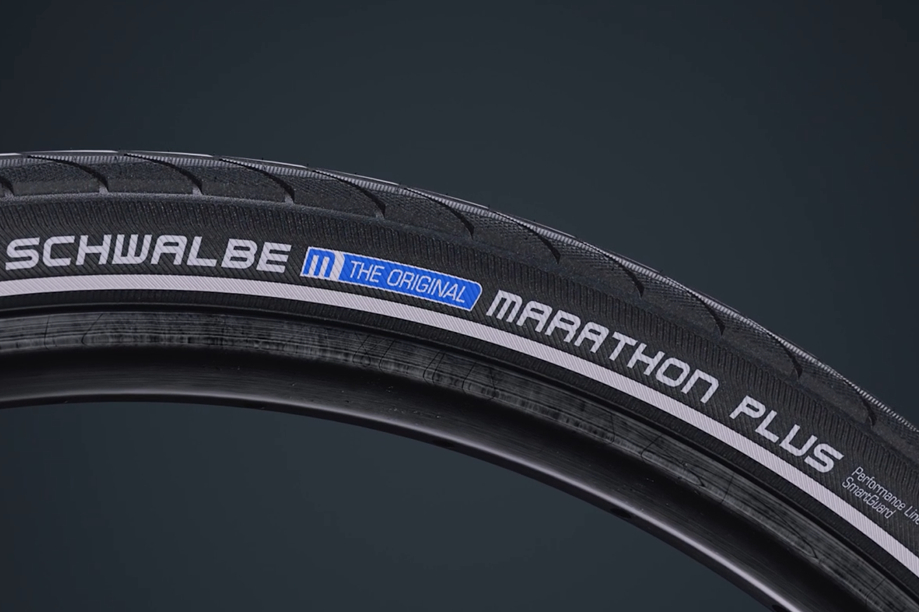
Marathon tyres includes a range of tread patterns, widths and sizes, all designed for reliable commuting. There's a tough 5mm thick puncture protection belt under the tread.
That leads to a tyre that's not the lightest, but which should keep rolling almost whatever the road throws at it. There's the option of reflective sidewalls.
700c tyres come in widths from 25mm up to 50mm and there are also tyres suitable for Bromptons and other folders, so that the tyre can be fitted to pretty much any bike you choose.
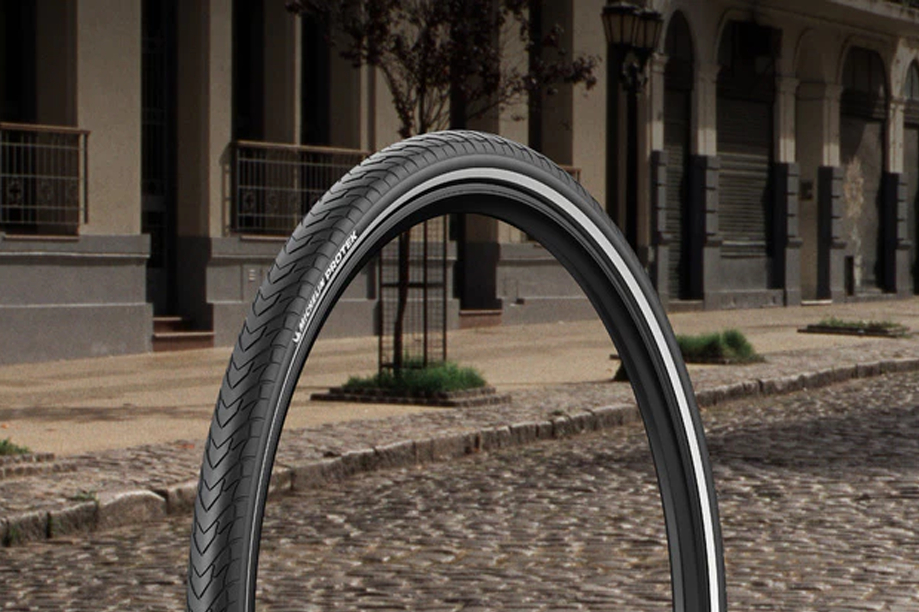
Michelin Protek tyres are designed for city riders, with a wide, grippy tread and the brand's City Shield tech which offers high-density bead-to-bead protection.
The Michelin Protek tyre family offers 1mm of puncture protection in the standard tyre which can be beefed up to 5mm thickness with the Protek Max.
The tyre is available in 11 sizes, with 700c options from 28mm up to 47mm.
Best commuter tyres for road bikes
The best road bike tyres for commuting will usually have an almost slick, treadless format and be narrower than hybrid bike tyres for commuting. That makes them faster and also should allow them to be fitted to road bikes, where tyre clearance can be an issue. Many of the best road bikes now allow you to fit full-length mudguards, making all-weather commuting more pleasant.
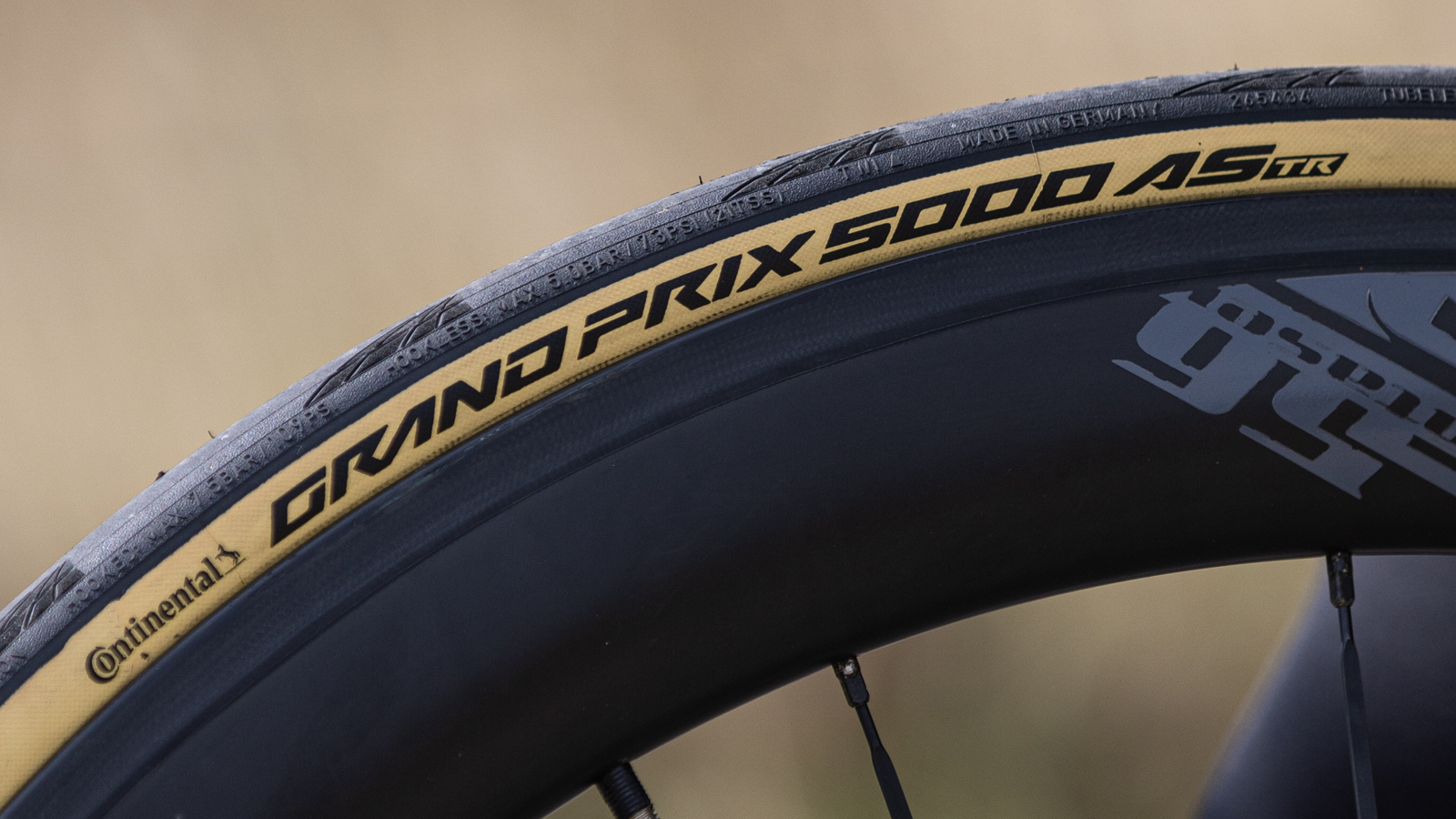
The Continental Grand Prix 5000 range now includes this four-season tubeless tyre. It's designed to be more robust and grippy than the standard GP5000, particularly in the wet.
Continental says that longevity has also been increased. Four ply sidewalls are designed to protect the tyre from sidewall damage.
Despite the beefed up construction, the tyre is designed to roll fast, while the option to set up tubeless should provide yet more puncture protection.
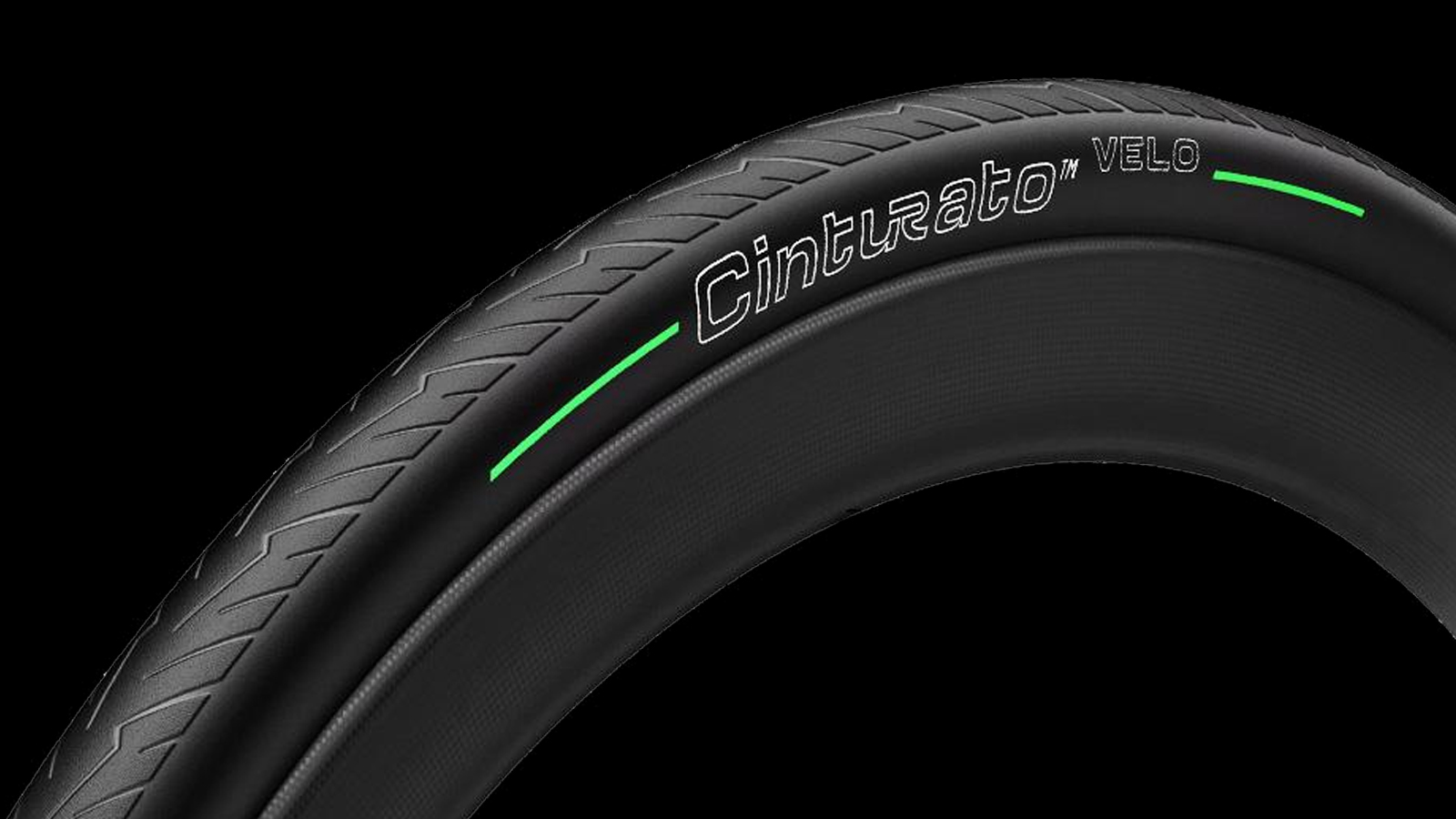
Pirelli has designed the Cinturato Road for fast commutes, with greater durability than its more racy PZero range. There's also greater grip from the compound used and the more pronounced tread pattern.
Its TechWall+ casing is designed to offer puncture protection and durability. There are four widths from 26mm up to 35mm available.
The Cinturato Road is designed to be used with inner tubes, if that's something you prefer to tubeless for its easier maintenance.
Best commuter tyres for gravel bikes
While many road bike tyres for commuting are narrow and slick, gravel bike tyres will be much wider and the majority of them will incorporate a distinct tread pattern. They tend to be built to be robust too.
That makes the best gravel bike tyres a great option for commuting, particularly if your commute takes you onto towpaths, tracks and poorer road surfaces.
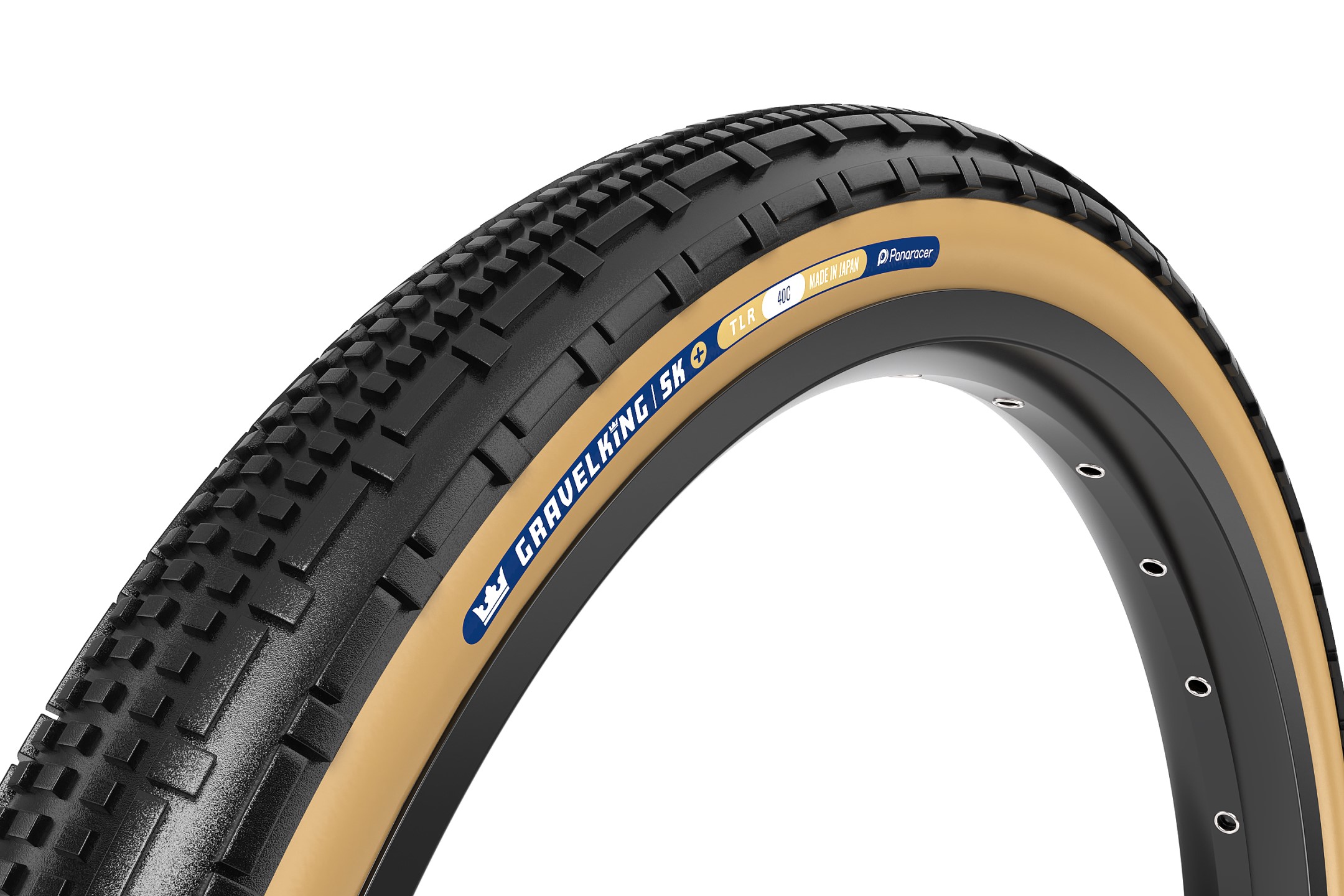
The Gravelking is a gravel stalwart which was relaunched in early 2024. SK stands for small knobs, so there's the grip for unmade surfaces without too much rolling resistance on tarmac. Widths range from 30mm up to 50mm and there's also a 650b option.
The Gravelking+ range has a dual puncture protection layer, so it's durable enough for the toughest commutes. Being a gravel tyre, there's tubeless capability, with Panaracer saying that set-up is now easier.
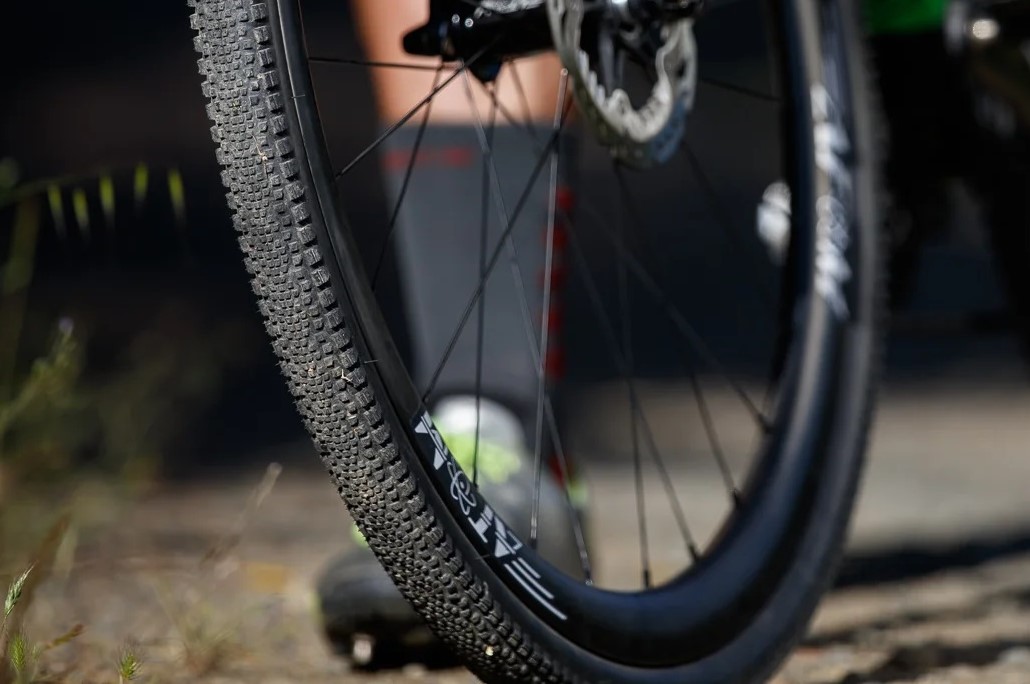
The WTB Riddler is another gravel bike tyre with a small block tread, designed to roll quickly while still giving a decent amount of grip and bead to bead puncture protection.
It's available in 37mm and 45mm widths and with black or tan sidewalls and enhanced SG2 puncture protection as well as the standard build.
The wider sizes will take full advantage of the clearance available in most gravel bike frames and help to give you a plusher ride too.
Best commuter tyres for electric bikes
While you can fit your electric bike with standard tyres, tyre makers are now bringing out tyres specifically designed for use on electric bikes. The greater weight and higher speed of e-bikes means that tyres may have rubber and tread patterns specifically designed for use with e-bikes.
In Europe, faster e-bikes - speed pedalecs - are required to have tyres designed for them and which conform to the ECE-R75 standard. It's also a good idea to fit such tyres if you use a Class 3 e-bike in the US.
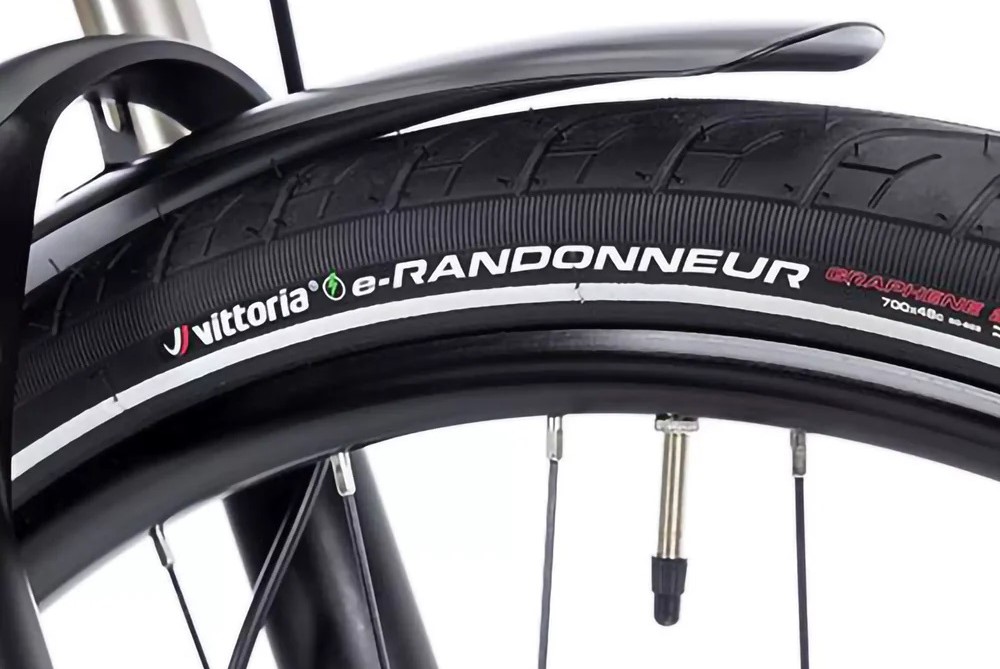
Designed specifically for hybrid e-bikes, the e-Randonneur has a high grip tread and reinforcement to handle the heavier load of e-bikes.
There's a 1.3mm thick puncture protection layer and reflective sidewalls for night riding.
The e-Randonneur is available in 700c size and widths from 35mm to 48mm as well as 650b x 44.5mm. It's designed to be used with inner tubes.
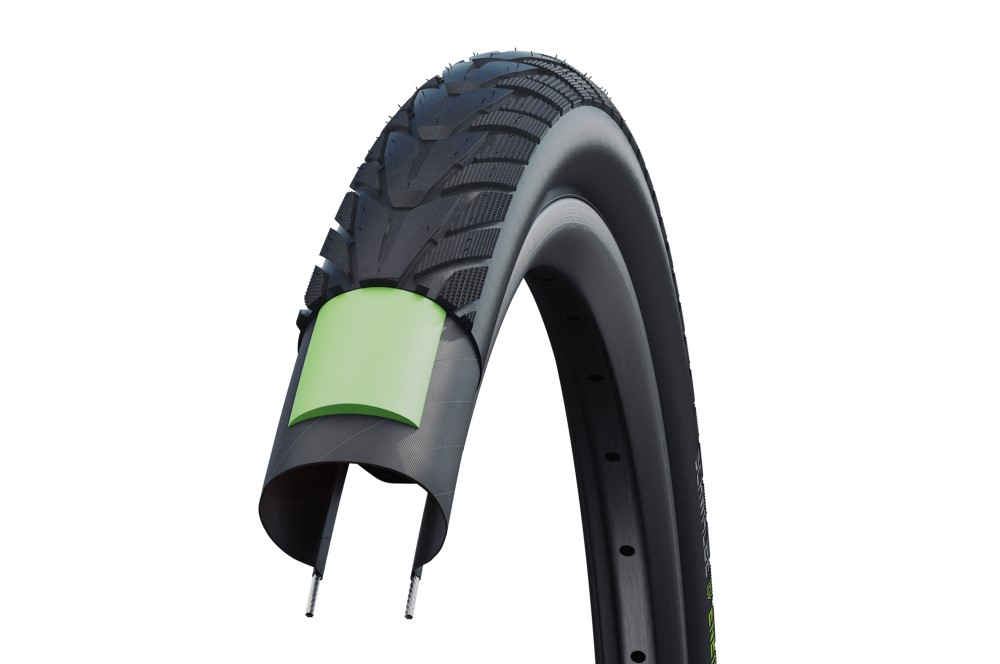
Schwalbe uses an e-bike specific Addix E-Compound for its Energizer Plus electric bike tyre. It's designed for grip, long wear and low rolling resistance when fitted to an e-bike.
There's 3mm puncture protection and the tyre is ECE-R75 rated for fast pedalec use up to 45kph/28mph. As with the Vittoria tyre, there are reflective sidewalls and the tyre is designed to be used with an inner tube and a maximum load of 100kg.
How to choose the best commuter bike tyres for you
Commuter tyres are built to withstand the rigours of city streets, with their less than perfect surfaces and often strewn with debris. They're also designed for all-weather grip and assurance, so that you can commute all year round in confidence.
Here's how to choose the best commuter bike tyre for your needs.
What are commuter tyres?
The best commuter bike tyres are designed to cope with daily wear and tear, focussing on good puncture protection and grip, to get you from A to B as smoothly as possible. This can be achieved in a number of ways, but is typically done through use of high-quality rubber compounds, reinforced sidewalls and bespoke tread patterns.
What is the difference between 'folding' and 'wire' bead?
Commuter tyres will come with either a wire bead or a folding bead; the difference is that one utilises a steel wire to engage the rim ("wire"), while the other will use a flexible fibre like Kevlar ("folding").
Wire bead tyres will be noticeably cheaper than folding bead tyres, and considerably heavier too.
Are tubeless tyres good for commuting?
Tubeless tyres have been the standard tyre on mountain bikes for quite some time, and are popular too across other disciplines. They must be used with tubeless-compatible wheels, and are set up by adding tyre sealant inside the tyre, rather than an inner tube. If the tyre is punctured, the sealant will clog up the hole, though large cuts may require a tubeless 'plug'. They can be run at lower pressures, as they cannot get pinch punctures.
Though great in theory, tubeless tyres can be difficult to repair when something goes wrong, requiring different tools such as a tubeless plug kit and occasionally a CO2 canister. As such, they aren't designed to be beginner-friendly, and are a matter of preference when it comes to commuting.
Are solid or "airless" tyres better for commuting?
Solid, or "airless", tyres do what they say on the tin: they are made of solid material, so require no air pressure to keep them hard and thus cannot get punctures.
Though this sounds like a perfect solution, there are three big problems with these sorts of tyres. Firstly, they can be extremely slippery in the wet and do not provide good grip on concrete or metal.
Secondly, they can cause major damage to your wheels, as there is no air to act as shock absorption. This means that the impact goes straight to the rim and can cause them to buckle or break quickly.
That relates to the third problem — a generally quite harsh and uncomfortable ride, while (a bonus fourth problem) they roll more slowly than pneumatic tyres.
What is puncture protection?
Puncture protection is based on a tyre's ability to withstand penetration by sharp or solid objects. Most tyres will have a puncture protection belt under the tread, which is tightly woven and so resistant to sharp objects.
This is usually backed up by the use of different rubber compositions, tyre thickness, and layering of casing materials. It is important to note that, though tyres may be said to have "high puncture resistance", no standard tyre is fully puncture-proof.
How do I choose the correct tread pattern?
As a rule, if a tyre can’t dig into a surface (like pavement) then the tread on bicycle tyres doesn't add much if any grip. Car tyres have a tread to avoid aquaplaning, but this is much less of a risk with narrow cycle tyres.
While most bike tyres have some form of tread, when choosing a tyre for a commute, think about the surfaces you will be riding on. If it's paved all the way, a slick or lightly treaded tyre will be your best pick, while if there is some gravel or dirt on your commute a bit of tread might just be the ticket — prioritise shoulder tread as this is what provides grip in the corners.
Why are commuter tyres often wider than road tyres?
Most commuter hybrid bikes will have tyres between 28mm and 45mm, and when it comes time to replace the tyres on your bike, the width can have a major impact on the way your bike rides. Wider tyres offer increased grip and comfort as they have a larger air volume and lower tyre pressure.
But don't go out and buy the fattest tyres you can find as they may not fit in your frame, and may be too broad for your rim to provide sufficient sidewall support. Fenders and brakes can also limit the size you can run.
The latest race content, interviews, features, reviews and expert buying guides, direct to your inbox!